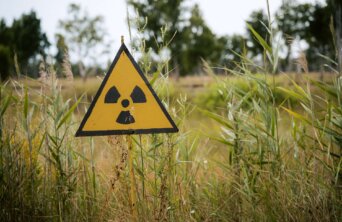- About
- Topics
- Picks
- Audio
- Story
- In-Depth
- Opinion
- News
- Donate
- Signup for our newsletterOur Editors' Best Picks.Send
Read, Debate: Engage.
| topic: | Human Rights |
|---|---|
| located: | Belarus, Russia, Ukraine |
| editor: | Katarzyna Rybarczyk |
In the beginning of June, Russian President Vladimir Putin announced that Russia will start deploying nuclear weapons to Belarus in the first week of July. The move is a signal to the West indicating that Russia is unwilling to give into Ukraine’s demand to stop the ongoing war.
Although the weapons will be physically kept in Belarus, Russia will retain control over them. Putin first unveiled plans for the deployment back in March, but their implementation has been awaiting the arrangement of special storage facilities. "Preparation of the relevant facilities ends on July 7-8, and we will immediately begin activities related to the deployment of appropriate types of weapons on your territory," Putin stated.
The agreement between Russia and Belarus is the first nuclear sharing deal made since the Treaty on the Non-Proliferation of Nuclear Weapons entered into force in 1970. A Senior United Nations disarmament official pointed out that “the risk such arms will be used is higher today than at any time since the end of the cold war.” This inherently raises concerns about potential human rights violations.
According to the United Nations, “the threat or use of nuclear weapons is incompatible with respect for the right to life and may amount to a crime under international law.” Additionally, the deployment fuels ongoing tensions between Russia and the West and risks intensifying the war in Ukraine, undermining people’s right to peace and security. “In times of high tensions involving nuclear-armed and/or allied states, plans and preparations for the use of nuclear weapons elevate the risk of nuclear war which would be a humanitarian catastrophe, severely impacting rights of current and future generations," observed Alyn Ware, Director of the Basel Peace Office.
As nuclear threats loom, proactive steps need to be taken to address this precarious situation. NATO says that “Putin’s nuclear move is being watched closely,” but security dialogues - involving Russia, Belarus, and NATO - should be launched immediately to prevent further militarization. The Treaty on the Prohibition of Nuclear Weapons (TPNW) is an important piece of international legislation, regulating international norms against the use, possession and development of nuclear weapons. While Russia has not joined the TPNW, reinforcing its principles could also prove instrumental in de-escalating current tensions.
A combined international effort is essential to make Russia align with global norms, thereby promoting peace and stability in the region.
Image by Kilian Karger

